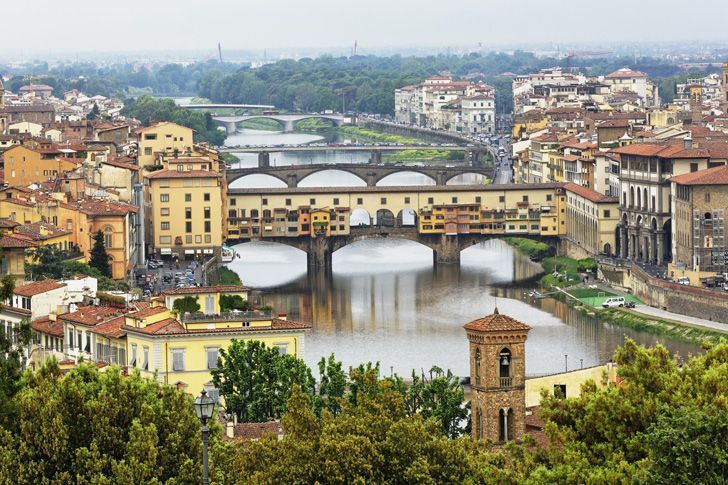Florence, Italy’s renowned tourist hub, has taken a decisive step to prioritize its local residents over tourists. The city has imposed a ban on new short-term residential rentals in its historic center, targeting platforms like Airbnb.
This move comes as a response to the city’s growing concerns about the rapid transformation of residential apartments into short-term “apartment-hotels.”
Late on Monday, the Tuscan city’s officials approved these new regulations, which also include an incentive for landlords. Those who transition their existing short-term lets into regular leases will be eligible for three years of tax breaks.
Florence’s Mayor, Dario Nardella, expressed his concerns about the rapid growth of Airbnb listings in the city. “In 2016, we had just under 6,000 apartments listed on Airbnb. Today, that number has soared to almost 14,378,” Nardella stated. He further highlighted that the average cost of standard monthly residential rents had skyrocketed by 42% during this period. Just this year, the prices have seen a steep increase of 15.1%.
Nardella, a member of the centre-left Democratic party, emphasized the need for the city to take local action. He mentioned that the government’s plans to regulate the sector had not met expectations. “The 40,000 Florentines residing in the center are voicing their concerns about the sudden shift towards living amidst apartment-hotels,” he added.
Italy’s housing crisis isn’t an isolated issue. Similar challenges are being faced across Europe, where low salaries, property shortages, short-term holiday rentals, and high inflation are exacerbating housing problems. This crisis particularly affects low earners and students. Even cities like New York are tightening their grip on short-term rentals in response to similar challenges.
However, not everyone agrees with Florence’s new regulations. Marco Stella, the regional coordinator of the Forza Italia party, which is part of the rightwing ruling coalition, announced plans to appeal against Florence’s decision in the administrative court.
Lorenzo Fagnoni, who heads Property Managers Italia, an association representing tourist rental entrepreneurs, criticized the new rules. He believes they are “a completely wrong choice that goes against the liberalism of the market.”
Airbnb, one of the major players in the short-term rental market, has yet to comment on the situation.
Meanwhile, Italy’s central government is reportedly drafting a bill that would impose stricter regulations on rentals in historic city centers and tourist-dense municipalities. The proposed regulations include a minimum stay of two nights and a mandatory national identification code for each property rented to tourists. Non-compliance could result in penalties up to €5,000.








